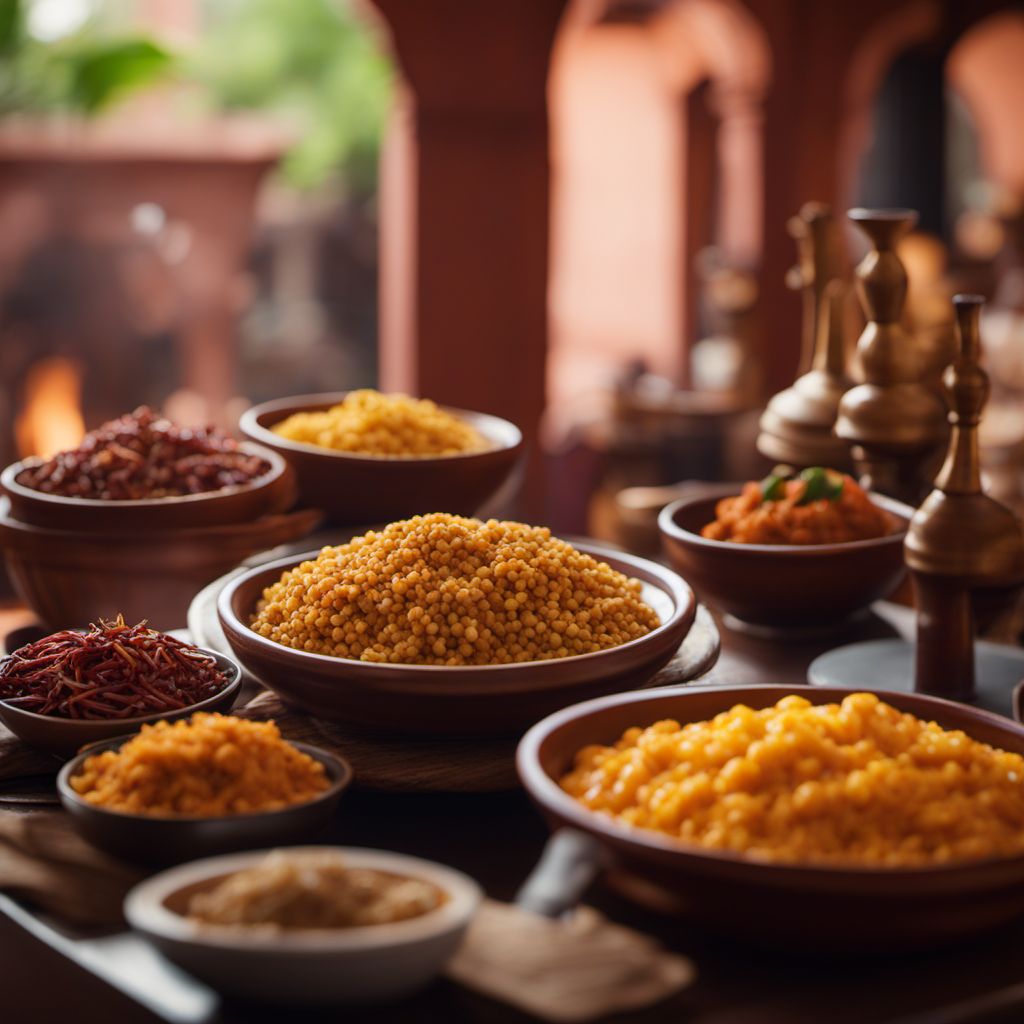
Cuisine
African cuisine
African cuisine is known for its use of fresh ingredients, bold flavors, and unique cooking techniques. The cuisine varies widely across the continent, with each region having its own distinct flavors and ingredients. African cuisine is characterized by its use of spices such as cumin, coriander, and cinnamon, as well as its emphasis on fresh vegetables and meats.
Typical ingredients
Rice, Yams, Cassava, Plantains, Beans, Lentils, Peanuts, Okra, Tomatoes, Onions, Chilies, Ginger, Garlic, Coriander, Cumin, Cinnamon, Cardamom, Turmeric
Presentation and garnishing
African dishes are often presented with a variety of colorful vegetables and meats, and are garnished with fresh herbs and spices.
African cuisine is also known for its unique desserts, such as sweet potato pudding and coconut milk custard.
More cuisines from this region...
East African cuisine, North African cuisine, West African cuisine, Southern African cuisine, Central African cuisine
History
African cuisine has a long history dating back to the earliest human civilizations. The cuisine has been influenced by trade routes, colonial powers, and migration patterns, resulting in a diverse blend of flavors and ingredients. African cuisine has also been shaped by the continent's geography, with coastal regions known for their seafood dishes and interior regions known for their use of grains and meats.
Cultural significance
African cuisine is an important part of the continent's culture and is often served at festivals and special occasions. The cuisine is also known for its communal dining style, with dishes served family-style and shared among diners.
Health benefits and considerations
African cuisine is generally healthy, with an emphasis on fresh vegetables and meats. However, some dishes may be high in sodium and fat.
African cuisine dishes Browse all »

Fatira
Fatira is a traditional African dish made from flour, water, and salt. It is typically served as a flatbread or pastry.

Smiley
Smiley is a traditional Icelandic dish made from boiled sheep's head.
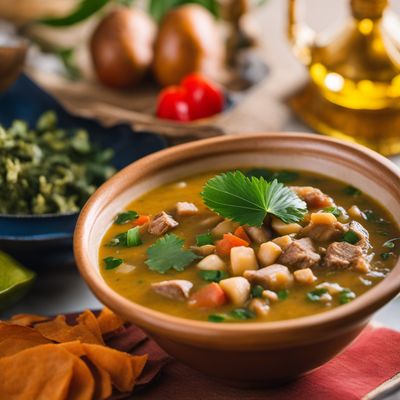
Palm nut soup
Palm nut soup is a traditional West African dish made with palm nuts and a variety of vegetables and meats. It is a rich and flavorful soup that is perfect for special occasions.

Nshima
Nshima is a traditional Zambian dish that is made with maize flour. It is a staple food in Zambia and is often served with a variety of stews and sauces.

Bogobe jwa lerotse
Porridge with sorghum flour
Bogobe jwa lerotse is a traditional dish from Botswana made from sorghum flour and water. It is a staple food in many households and is often served with a variety of stews and soups.

Point & Kill
Point & Kill is a popular West African dish that is typically made with fresh fish. The name comes from the practice of pointing to the fish you want and then having it killed...
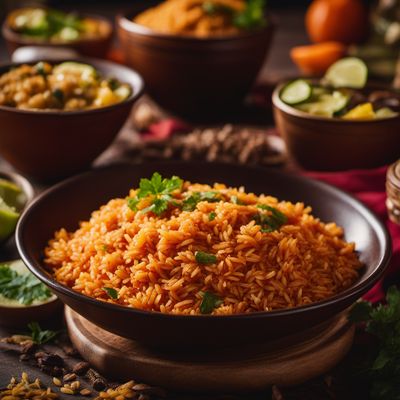
Jollof Rice
Jollof Rice is a classic West African dish that is popular in Nigeria, Ghana, and Senegal. It is a flavorful rice dish that is perfect for a cozy night in or a festive occasion.

Saka saka
Cassava Leaf Stew
Saka saka is a traditional African dish that consists of cassava leaves cooked in a flavorful sauce made with onions, tomatoes, and spices. It is a hearty and nutritious dish...
African cuisine recipes Browse all »

African-inspired Chocolate Delight
Savory Cocoa Fusion: An African Twist on a Classic Brownie Sundae

African Spiced Biscotti
Savory and Spiced: African Twist on Biscotti
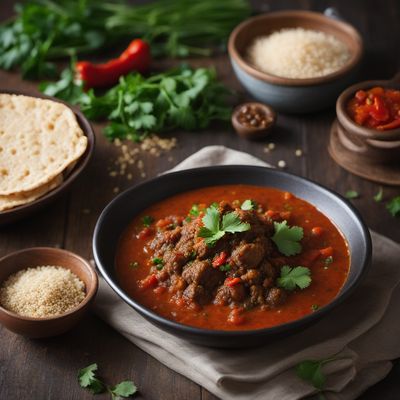
African Spiced Lamb Stew with Couscous
Savory African Lamb Stew: A Burst of Spices and Flavors

African-inspired Beetroot Soup
Savory Beet Delight: African-inspired Beetroot Soup

Fatira with a Twist
Savory African Flatbread Delight

Janga Coconut Curry Soup
Savory Delight: Janga Coconut Curry Soup
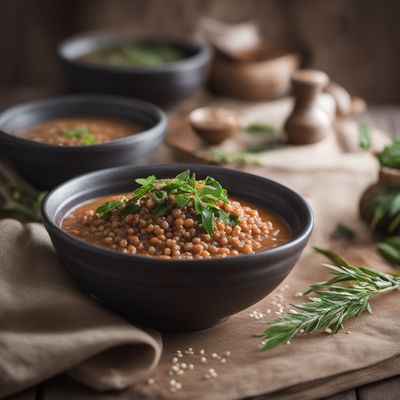
Bogobe Jwa Lerotse - Traditional African Sorghum Porridge
Savory African Sorghum Porridge: A Taste of Tradition

African-inspired Amarena Cherry Gelato
Safari Delight: Amarena Cherry Gelato with an African Twist
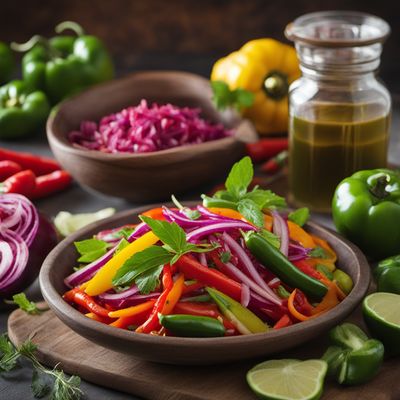
African-inspired Spicy Vegetable Salad
Safari Salad: A Vibrant Blend of African Flavors

Smiley Delight
Savory African Grilled Goat Head
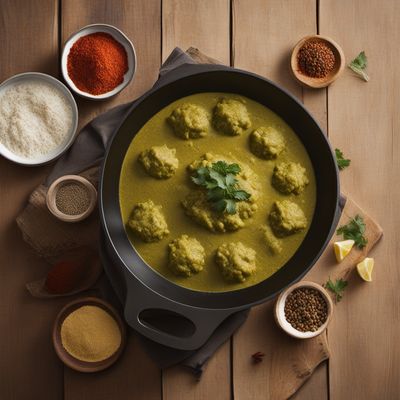
African-inspired Spiced Dumplings
Savory Spice Delight: African-inspired Spiced Dumplings

Oysters Mombasa with Spicy Coconut Sauce
Savory Delight: Oysters Mombasa in Exotic Spicy Coconut Sauce